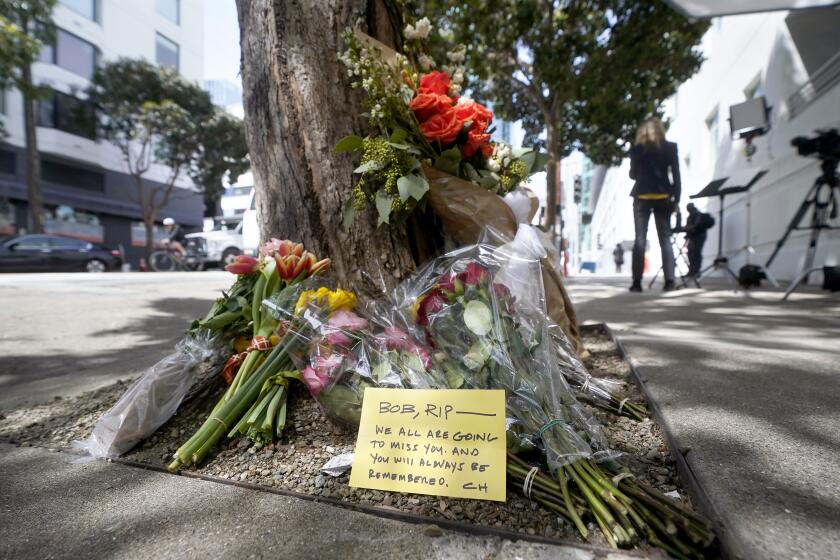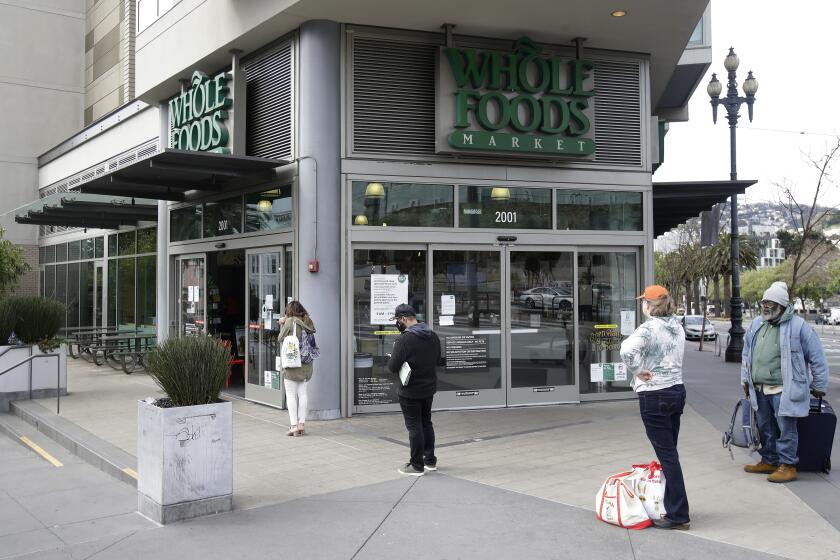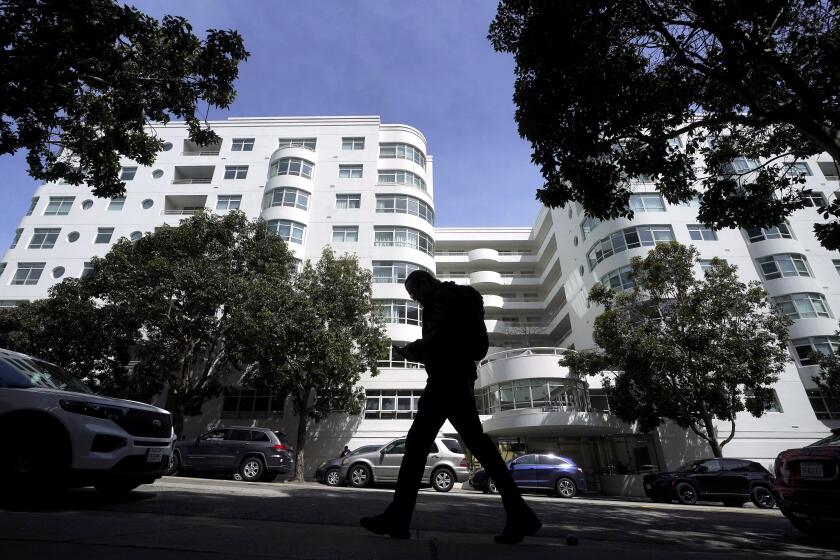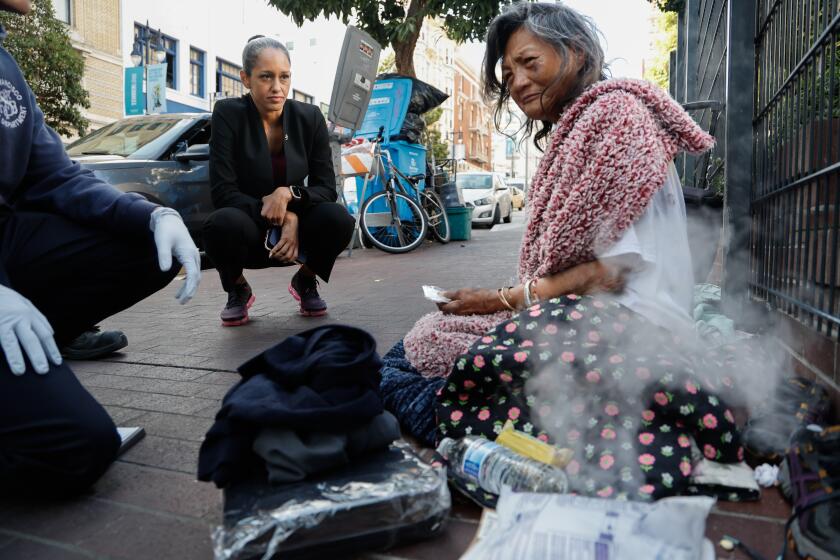Tech consultant charged in S.F. murder knew Cash App founder, but motive unclear
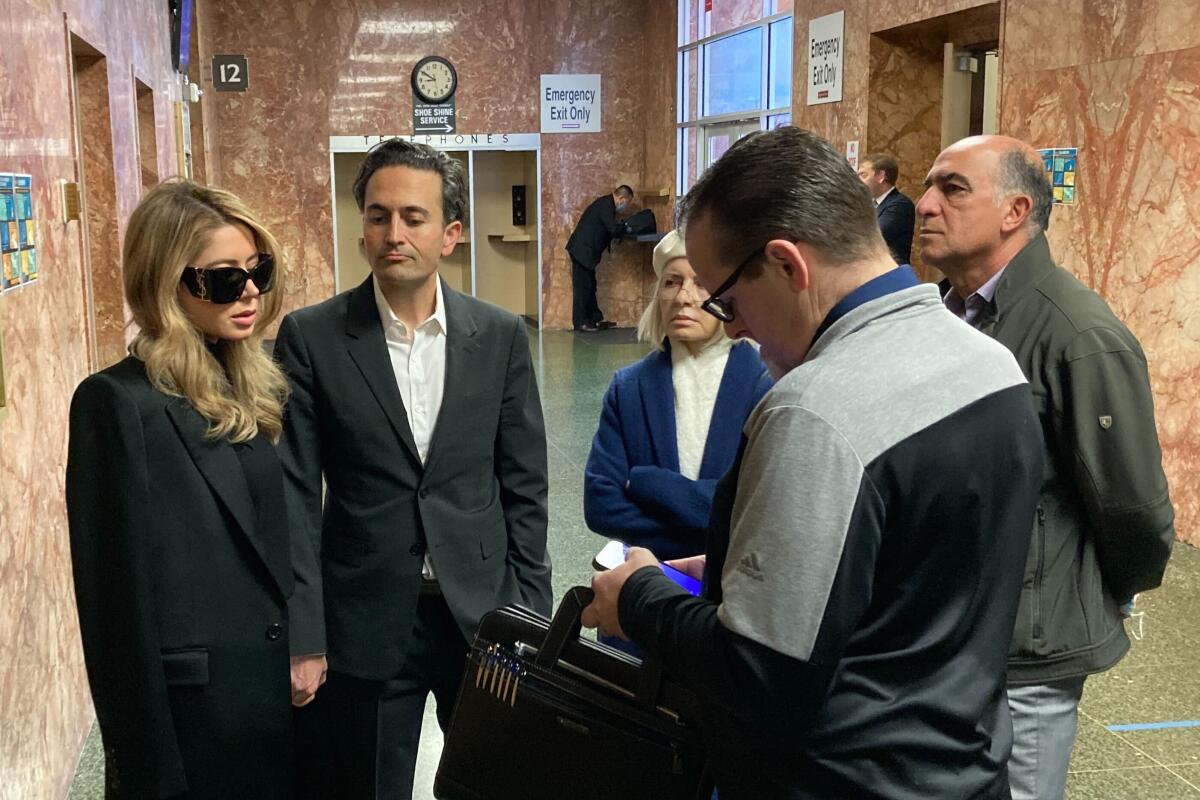
The fatal stabbing of Cash App founder Bob Lee last week reignited a debate over crime in San Francisco, with some high-profile figures decrying the killing as yet another example of rampant, wanton violence.
But in announcing murder charges Thursday, authorities said Lee was killed by someone who knew him, not a random street attacker.
Nima Momeni, 38, a tech consultant and entrepreneur, was taken into custody without incident Thursday morning in Emeryville, San Francisco Police Chief Bill Scott announced at an afternoon news conference.
Momeni was charged with murder and a special circumstance that he used a knife to kill Lee, San Francisco Dist. Atty. Brooke Jenkins said.
Authorities said Thursday that the case is still under investigation and did not disclose a motive.
The arrest marks a twist in the much-watched case, which some had used to push a narrative that San Francisco was overrun by random street crime. However, like most homicide victims in the United States, Lee knew his attacker, authorities said.
“This is more about human nature and human behavior than it is about our city,” Scott said. “You take this out of San Francisco — they knew each other. It could’ve been in any other city. I don’t think it would’ve changed the circumstances.”
The stabbing death of Cash App founder Bob Lee this week has sparked fears from residents and tech industry leaders alike over crime rates in San Francisco.
After Lee’s death, tech executives and other high-profile figures, including Twitter Chief Executive Elon Musk, decried the violence in the city, where progressive Dist. Atty. Chesa Boudin was recalled by voters last year after being criticized as “soft on crime” and accused of neglecting to address public safety and homelessness.
“I must point out that reckless and irresponsible statements like those contained in Mr. Musk’s tweet that assumed incorrect circumstances about Mr. Lee’s death serve to mislead the world in their perception of San Francisco and also negatively impact the pursuit of justice for victims of crime, as it spreads misinformation at a time when police are trying to solve a very difficult case,” Jenkins said Thursday.
Lee, 43, the chief product officer at cryptocurrency startup MobileCoin, was found bleeding near the San Francisco-Oakland Bay Bridge around 2:35 a.m. April 4. He was taken to a hospital, where he died.
Momeni’s arrest was first reported by the news outlet Mission Local, which said police had served a search warrant at an address in Emeryville that matches a business owned by Momeni, Expand IT.
The building is a mix of residential and office space, according to Chris Donatiello, who lives there and said many in the building know Momeni.
Around 5 a.m. Thursday, at least six police officers showed up at the building.
“I saw the police outside all geared up. I didn’t know what was going on,” Donatiello said.
Momeni had seemed friendly and welcoming, Donatiello said, adding that nothing appeared amiss when he saw Momeni after Lee’s death.
“I saw him last week. Just outside in the parking lot,” Donatiello said. “I said, ‘Hey, haven’t seen you in a while. How are you?’ and he said, ‘Better now that I’m seeing you.’”
Whole Foods Market temporarily closed its flagship store in San Francisco over concerns about employee safety. The city still has eight other locations.
Sam Singer, who works in an office next to Momeni’s and serves on the building’s board, said they met when Singer was moving into his space a month ago.
He called Momeni a “kind, professional gentleman” but noted an odd incident the night before Lee’s death, April 3, when a woman entered the building and screamed the name “Nima,” according to Singer as well as posts in the building’s private Facebook group.
Singer said the episode was so unnerving to residents that a complaint was filed about it.
Singer said that Momeni worked and lived in his unit, and had been there as far back as 2021. When Singer first moved into his own unit, Momeni left a note for him, welcoming him to the building.
“He was very welcoming, kind and charming. You’d never have any idea that he would be accused of such a heinous crime.”
A neighbor, who declined to give her name, said police officers, including a SWAT team, arrived Thursday morning to arrest Momeni and told residents on his floor to stay inside.
“It makes me wonder how owners and landlords vet their renters,” she said. “I’m not wild about knowing someone lived in our building who goes around with a knife.”
Momeni was charged in 2011 in Alameda County with driving with a suspended license and selling a switchblade knife. He pleaded no contest to the moving violation, the knife charge was dismissed, and he was sentenced to 10 days in county jail and three years of probation.
He was also charged in 2004 with driving under the influence of alcohol, a misdemeanor. The charge was eventually dismissed.
Family and friends of Cash App founder Bob Lee mourned the loss of their loved one after the tech executive was fatally stabbed in San Francisco this week.
Lee’s brother, Tim Lee, said after the arrest that the family was “thankful for the SFPD for bringing this person to justice so quickly.”
“Hopefully now our family can begin the healing process,” he wrote on Facebook. “I also want to thank the thousands of friends, family, and community that have reached out with support over the last week.”
Bob Lee was chief technology officer at the payments platform Square, which has since been renamed Block, when he founded the company’s mobile payment service Cash App in 2013. He lived in Mill Valley, Calif., after his mother died in 2019, then he moved to Miami in October, according to a Facebook post last week by his father, Rick Lee.
“Bobby worked harder than anyone and was the smartest person I have ever known,” Rick Lee wrote. “He will be missed by all those that knew him.”
At the time he was killed, Bob Lee was staying in San Francisco for a few days to spend time with friends after a MobileCoin leadership summit, said his friend Doug Dalton, who met Lee years ago when both were software engineers.
“Some people have been trying to frame this as rampant crime,” Dalton wrote in a text message to The Times, but “San Francisco is turning around.” Rather than a random attacker on the street, the man accused of killing Lee was “in a friend group but not a friend,” Dalton said.
After Dist. Atty. Chesa Boudin was recalled, his replacement will be Brooke Jenkins — a prosecutor who quit Boudin’s office to join the campaign against him.
San Francisco Supervisor Aaron Peskin called Lee’s killing tragic but said the idea that it was reflective of a wave of violent crime was inaccurate.
“The reaction by the press and a lot of leaders in the tech community was premature and destructive,” Peskin said in an interview. “This was not a random killing. The suspect knew the victim.”
After the arrest, San Francisco Supervisor Dean Preston tweeted that people who “tried to exploit this tragedy to stoke hatred of the poor” should publicly apologize.
That includes not just national and local politicians who made assumptions about the killing, he told The Times in an interview, but also people such as Musk who mischaracterized crime in San Francisco.
“Within hours of that murder you had people immediately blaming homeless people, talking about out-of-control street crime and drug use and calling for more police, even though they don’t have a clue of what happened,” Preston said. “Where does this even come from? Why is one of the richest people in the world tweeting about a murder in San Francisco and tweeting to the district attorney?”
After Lee’s death, Musk tweeted that “violent crime in SF is horrific,” and asked Jenkins whether the city was taking action “to incarcerate repeat violent offenders.”
Like her predecessor Chesa Boudin, interim San Francisco Dist. Atty. Brooke Jenkins has become a polarizing figure in the city’s politics.
In response to inquiries from The Times about Musk’s comments, Twitter responded with an automated poop emoji.
George Tita, a professor of criminology at UC Irvine, said comments such as Musk’s are damaging because they alter the public’s perception of crime versus the real effect of it.
“You can’t walk those statements back,” Tita said. “The damage is done.”
Such high-profile criticism, he said, also tends to get much more attention than analysis of city crime statistics, which show crime is not skyrocketing as critics have portrayed.
“Some people believe places like San Francisco and Los Angeles are a war zone, when it’s just not the case,” Tita said. “It’s very important to not be dismissive and say there isn’t crime or we should ignore it. But you have to keep perspective on this.”
Venture capitalist Matt Ocko, a friend of Lee’s, tweeted shortly after his death that the “criminal-loving city council” and Boudin “have Bob’s literal blood on their hands,” charging that city officials enabled “a lawless SF for years.”
Ocko has repeatedly tweeted about crime in San Francisco. On Wednesday, he said residents were experiencing “seething, grinding lawlessness” and cast doubt on the city’s official crime statistics. He did not immediately respond to a request for comment.
With a decline in homicides and aggravated assaults, violent crime leveled off across Los Angeles in 2022, according to preliminary LAPD data. Meanwhile, property crime rose roughly 9%.
Violent crime — which according to the California Department of Justice includes homicide, rape, robbery and aggravated assault — peaked in 2013 in San Francisco with 7,064 incidents. That number has fallen over the last decade, down to 4,796 incidents in 2020 before a slight uptick to 4,887 incidents in 2021. The state agency has yet to release crime statistics for 2022.
From 2019 to 2021, San Francisco saw a 17% drop in violent crime. Los Angeles, San Diego, Orange, San Bernardino, Sacramento, Fresno and Kern counties all saw increases, according to the Department of Justice.
San Francisco reported 56 homicides in 2022, fewer than cities of similar size such as Denver, with 88 homicides; Nashville, with 108 homicides; and Oklahoma City, with 71 homicides.
Police Commissioner Kevin Benedicto pointed out that the city’s violent crime rate is lower than that of other major cities.
“Overall, if you look at the last five years and 10 years on a longer-term scale, crime is at a historic low,” he said. “San Francisco has public safety issues like every big city, and it’s unfairly portrayed as being in the midst of a crime wave that isn’t born out of the data.”
Still, although violent crime has fallen, San Franciscans reported feeling less safe than they did a decade ago, according to the results of a city survey released Thursday.
Residents rated the city’s safety as a C+, down from a B in 2019, the last time the city conducted the survey. About 63% of respondents said they felt safe walking alone in their neighborhood during the day, and only 36% said they felt safe walking alone at night. In 2019, 85% said they felt safe during the day and 53% at night.
In 2013, during San Francisco’s peak in violent crime, 44% of respondents said they felt safe alone at night.
More to Read
Sign up for Essential California
The most important California stories and recommendations in your inbox every morning.
You may occasionally receive promotional content from the Los Angeles Times.
